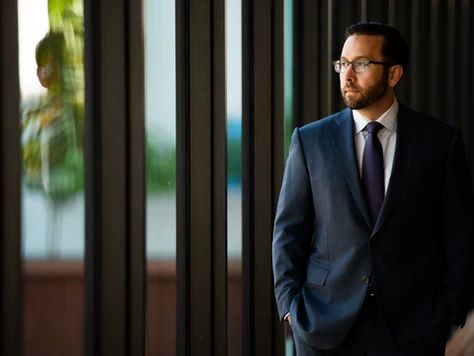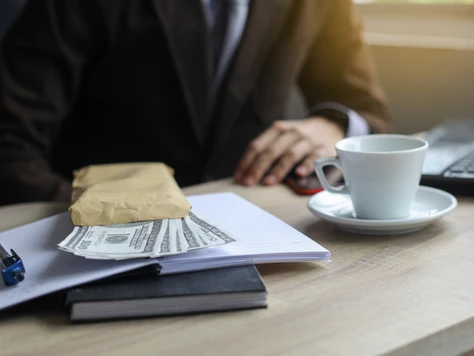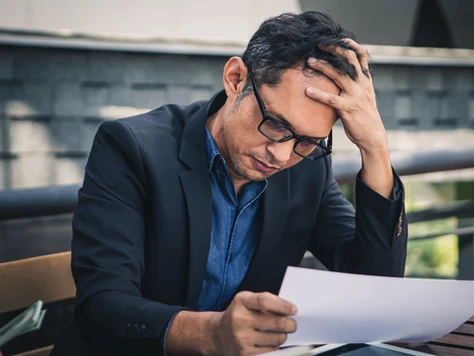Unfortunately, sometimes justice depends on the lawyer. Righteous cases don’t always win. Especially when those cases are against the heart-stopping power of global apex corporations, it doesn’t happen unless the lawyer has the skill to prevail against that kind of power. How do we develop those skills? “You must be ready,” my first boss, Bob Kelly, told me. When I rose to argue, he would rip up my notes. When he heard another lawyer was having problems in a trial, he would send me into the courtroom to take over, even if because I knew nothing about the case. He would have me argue motions in different courtrooms scheduled simultaneously. It seemed like madness until I realized that this was training.
I saw Bob win trials in little moments that snuck past everyone else. Like when one witness, a feared defense expert, tapped his fingers when Bob asked how much he charged. I knew by then that some weakness had been revealed. Bob waited and waited and waited. He waited until the silence became uncomfortable. Until this master expert witness muttered, “I resent the implication that I’m being paid to lie.”
Most lawyers would’ve never gotten that. They wouldn’t have seen the opportunity. They wouldn’t have waited for it to play out, and then even if they had lucked into it, they wouldn’t have noticed it because their noses were stuck in their notes. Too bad because that trial was over. Bob had never mentioned anything about being paid to lie. It was what the witness was thinking, and Bob made sure we all understood that everyone in the courtroom, the truth came out. This witness was key to the defense, and he was being paid to lie.
Bob told me in my first year as a lawyer that I must always be ready to seize a moment like that, even at my age, even with a witness far beyond my skill. “What if I’m not ready?” I asked. “Be,” he said, “Just be.” I used to think he meant to be ready, but now I know. He meant exactly what he said. Be, just be, and exist in the courtroom alive to the moment with the skills you need already developed. How do you become that lawyer?
During the Vietnam War, pilots in the US Navy were getting killed at an incredible rate. But if a pilot survived his first few dog fights, that pilot would likely survive the war. So the Navy created the Fighter Weapons School or TOPGUN training in order to give pilots the experience of those first few dog fights without the deadly risk. It worked. The survival rate skyrocketed. Lawyers can do the same thing. Take the time to hone your skills in realistic settings with good lawyers to mentor you, and do it again and again and again. There’s no shortcut. There’s always more to learn.
But there’s no other way because the power of the global apex corporations and their influence grows by the day. It reminds me of a story in zen. We have a strained view of what that word means. Very different from the original meaning in Japan a thousand years ago. In zen, knowledge is based on experience, not on academics, not on intellectual ideas. You cannot understand things with your intellect. These things can only be understood through experience, and trials are the same way. What I tell you, you can understand in an academic way, you can understand on an intellectual level, but you cannot really understand what I’m saying until you have the experience. Just like in zen, in real zen, in authentic zen.
And then, so this reminds me of the story in zen about the young monk who asked how to become enlightened. “Just sit ten years,” said the master. The young monk came back not quite as young ten years later, “What do I do now?” he asked. “Just sit 20 years.” It’s the exact same thing. If you want to be a trial lawyer. If you come back after 20 years, you know the answer. Just sit for 30 years; it’ll never end. You’re always going to have to be fighting to make yourself a better lawyer if you want to beat the power of the global apex corporations.
Let’s look at one case and see how it happened. Here’s the story. Samantha was dirty and tired when she got home from the park with her dad. Her grandmother, Carida, slipped her into the kitchen sink to soak and scrub. Then as a two-year-old, Samantha splashed around. Carida filled the pressure cooker with water, chicken, and seasoning. She put it on the stove and turned on the burner. A few minutes later, the pressure cooker made a noise like a gunshot and started shooting steam at the side. Carida grabbed the boiling hot pressure cooker, but it slipped, and she dropped it on Samantha. Samantha was burned over 80% of her body. The doctors were able to save her, but they were forced to perform amputations on all four of her limbs. She spent a year in the hospital.
The police were suspicious of possible child abuse and conducted a thorough investigation. So did the fire department and the Consumer Product Safety Commission. None of them found anything wrong with the pressure cooker. Other lawyers turned them down and said there was no case. When the family came to us, well, the fact seemed clear. The grandmother had bathed the granddaughter next to the stove, overfilled the pressure cooker, and then dropped the boiling hot pressure cooker into the sink onto the baby. That’s exactly why other lawyers didn’t want the case. But there was a video of Samantha in the hospital, her little body wrapped in white bandages. She looked like a tiny mummy. “Help me,” she says on that video, her voice weak, “Help me.”
So we hired her own product design expert and had him conduct a thorough investigation. He also found no defect. This little girl was the victim of a devious corporate coverup, and they came this close to getting away with it. The Consumer Product Safety Commission didn’t help her. The police and the fire department didn’t find the corporate coverup. Lawyers turned her down. They didn’t see a case. It took us years to expose the coverup and discover the hidden defect. Our own engineering experts missed it. We had to do our own testing. It was dangerous. Was it worth it? Is that the type of lawyer that I want to be? What do you want to be? Was it worth it? You tell me.


